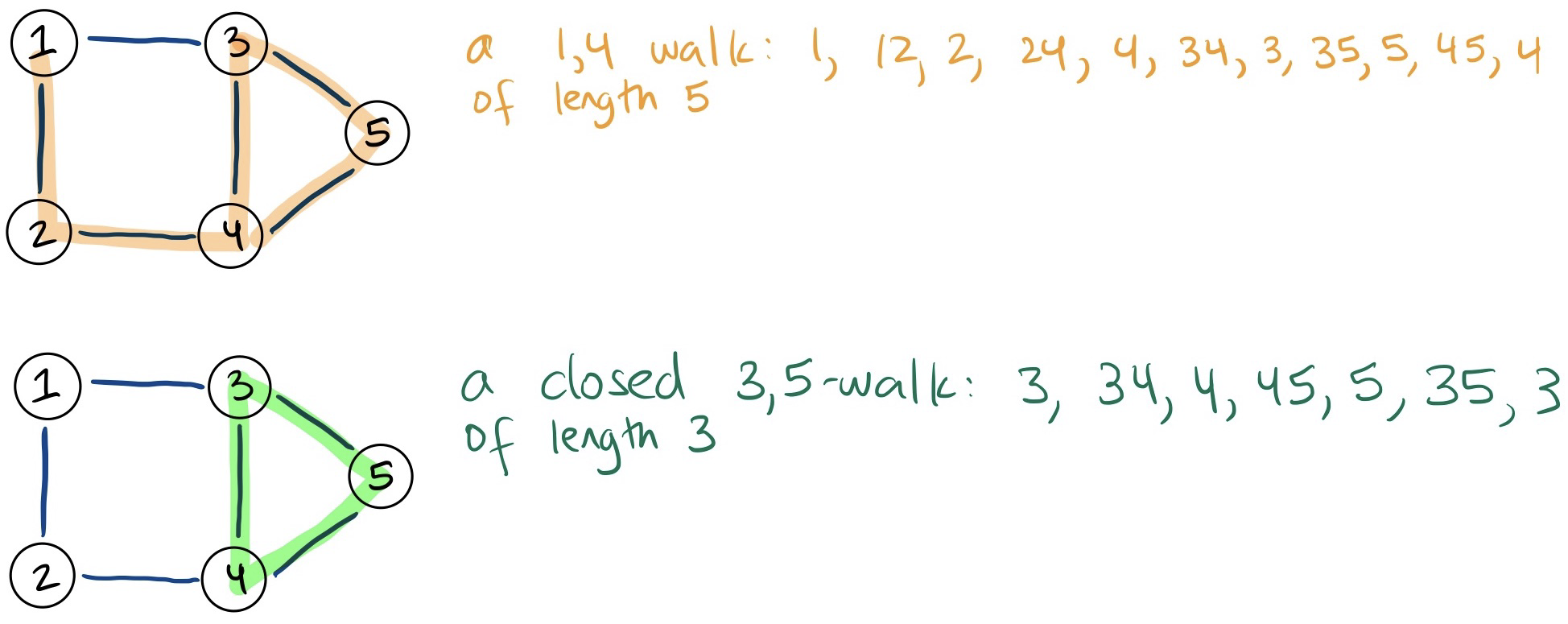Graph Theory
Learned formally in MATH239. See Graph for implementation for a programming perspective.
Relationship with Combinatorics
I learned graph theory in my combinatorics course, and although it seems like they are completely different, I think it’s because graphs also involve counting: number of paths between nodes, number of subgraphs, ways to color a graph, etc.
Concepts
Graph Density
The average degree of a vertex in is This is a measure of the density of a graph.
Girth
The girth of a graph is the length of its shortest cycle. If has no cycle, then its girth is .

Subgraph
A graph is a subgraph of a graph if the vertex set of is a (non-empty) subset of the vertex set of () and the edge of is a subset of the edge set of () where both endpoints of any edge in are in .
- If , we call a spanning subgraph
- If , then is a proper subgraph
Walk
A -walk is a sequence of alternating vertices and edges where and . This walk has length .
- a walk is closed if

Path (also called simple path)
A -path is a -walk with no repeated vertices.
- Note that since no vertices are repeated, no edges are repeated either

Theorem 4.6.2
If there is a -walk in , then there is a -path in .
Corollary 4.6.3
If there is a -path and a -path in , then there is a -path in .
Cycle
A cycle of length is a subgraph with distinct vertices and distinct edges .
- In a simple graph, the minimum length of a cycle is 3 (the triangle)

Theorem 4.6.4
If every vertex in has degree at least 2, then contains a cycle.
Bridge
An edge of is a bridge (or cut-edge) if has more components than .

Lemma 4.10.2
If is a bridge in a connected graph , then has exactly 2 components, and and are in different components of .
Theorem 4.10.3
An edge is a bridge of if and only if it is not contained in any cycle of .
This fully characterizes bridges:
- edge in cycle edge is not a bridge
- edge not in cycle edge is a bridge
Types of Graphs
- Planar Graph
- Petersen Graph
- k-Regular Graph
- Complete Graph
- Bipartite Graph
- Interference Graph
- Connected Graph
Visualization